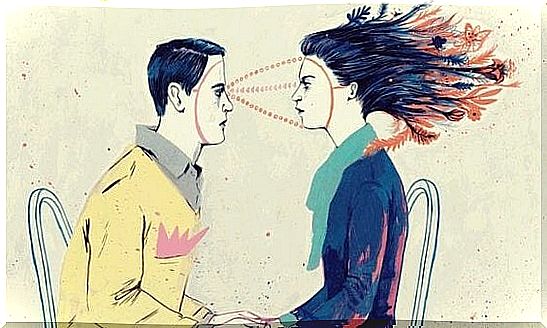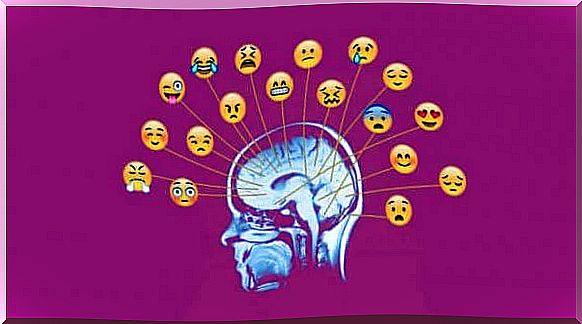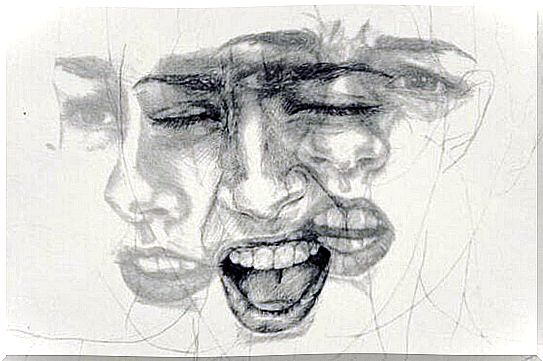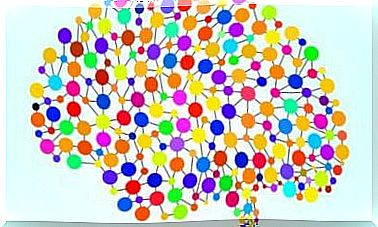Emotional Awareness: What Is It And Why Do We Need It?

Emotional awareness is like an awakening of our emotional intelligence. It is the first step in which we identify and define our moods in the midst of chaos in order to take control of our lives. It is certainly a skill we should all develop, a powerful tool to help us better control our emotions.
However, this tool is not easy to use. Why? Because emotional experiences are at times variable, unpredictable and chaotic. We have all been in a situation like this. Trapped in a place where the only thing we can see are negative emotions. Where our health is declining due to the emotional chaos within us, which drains our soul and makes us shadows of our true selves.
In fact, many of us end up in the therapist’s office saying things like “no one understands me,” or “I feel like I’m carrying the weight of the whole world on my shoulders, I’m exhausted.” But we almost never have real emotional consciousness. We often fail to identify what lies behind our sadness or fatigue.
In his book, “Emotional Intelligence,” Daniel Goleman explains that being aware of our emotions helps us to adapt to life’s challenges. Continuously reflecting on how we feel and what lies behind our moods directly affects our well-being. In addition, it gives us strategies for dealing with possible depression and other mental disorders.

What is emotional awareness and why do we need it?
Did you know that around 250 words have been cataloged to describe different types of emotions? But how many of these words do we know? Were we taught how to use them as children? Knowing how to identify and name our emotions will truly enhance our lives.
That is why we all need to develop real emotional awareness. Here are just a few more reasons to do so:
- To recognize your moods and reflect on them to make better decisions.
- To understand the feelings of others and relate to them better.
- Emotional awareness helps you set boundaries to protect yourself.
- It helps us to get to know ourselves.
Finally, here is an interesting fact: people who have good emotional intelligence are less likely to develop anxiety, depression and related disorders.

Different levels of emotional awareness
One of the best skills we can teach our children is how to gain true emotional awareness. After all, showing them how to reflect on their own feelings early on, how to name and manage them properly, will give them a better chance at social – and perhaps even academic – success.
To better understand this, let’s take a closer look at some important parts of the “Levels of the Emotional Consciousness Scale” (eLEAS), created by psychologists Lane and Schwartz.
eLEAS
- Recognize the feeling. Every emotion has a physical impact that we should be aware of. Maybe you want to feel a change in heart rate, a lump in your stomach…
- What kind of response does it create in you? Emotions have an adaptive function. Some encourage us to act with all the energy they give us. Identify the energy behind an emotion.
- Identify the primary emotions. Every emotion, every mental state starts with a primary emotion that we can identify when it happens. Do I feel angry? Am I sad?
- What are the emotions behind or related to the primary emotions. This step requires more depth, delicate handling and – above all – courage. Why? Because accepting negative emotions is not easy. Behind a primary emotion there can be a whole maze full of dark corners you have to shine light on. Sometimes behind sadness is frustration, anger and disappointment. Sometimes, behind my anger, there is a demon made up of feelings of loss and failed expectations.

To conclude, making yourself an emotionally competent person by using these strategies will have a direct, positive impact on your mental health. Emotional awareness is like the conductor’s baton we use to orchestrate a happier life. It is the compass that leads us in a more satisfying direction where we feel better and have more control over our lives.
Let’s start today!
Source list:
Bisquerra, J. and Pérez, N. (2007). The emotional competencies. Education XXI, 10, 61-82.
Rieffe, C., Villanueva L., Adrián, JE y Gómz, AB (2009). Somatic queues, states of love and emotional conscience in adolescents. Psicothema, 3, 459-464
Stegge, H. y Meerum Terwogt, M. (2007). Awareness and regulation of emotion in typical and non typical development. In JJ Gross (Ed.), Handbook of emotion regulation (pp. 269-286). New York: Guilford Press.
Lambie, JA and Marcel, AJ (2002). Consciousness and the varieties of emotional experience: A theoretical framework. Psychological Review, 109, 219-259.









